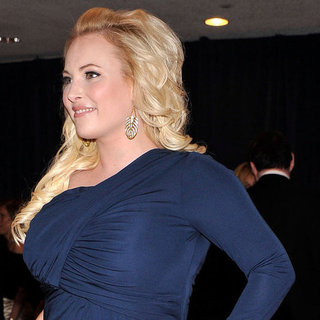Women Critics of Feminism
Why Do Women Hate On Feminism?
Feminism is the theory of political, economic, and social equality of the sexes. At its core, that definition should not be so controversial. But did you ever notice that feminism's biggest critics are often women? Consider just this week that half of those in the Church of England's Synod who voted against allowing women to serve as bishops were women themselves.
Yes, there are some famous women who proudly label themselves feminists, but many others often treat it like the "f-word" when interviewed by glossy magazines. In the new issue of French Vogue, former first lady Carla Bruni-Sarkozy said she had little use for feminism. She said, "There's no need to be feminist in my generation. There were already pioneers who opened doors. I am not a feminist activist. Instead, I am bourgeois." Of course, a woman is not required to make women's rights the cause of her life, but to say there are no more doors to be opened takes for granted the progress we've made and underestimates remaining inequalities. Perhaps it's easier for Carla Bruni-Sarkozy to make such assessments from France, where they don't argue over contraception coverage and abortion rights are assumed.
Speaking of the debate in the US, yesterday, 44-year-old author of The Flipside of Feminism Suzanne Venker captured the attention of the Internet when she wrote about the "war on men" on Fox News. Unlike Carla Buni-Sarkozy, who thinks feminism has done its job, Venker thinks the movement's advancements should be reversed. Venker argued feminism is to blame for perceived lack of "marriageable" men — not the disappearance of manufacturing jobs, the fact that fewer men than women attend college, or other complex economic factors. She said feminism has pissed men off, and many men don't want to get married ever because "women aren't women anymore." She wrote, "Men want to love women, not compete with them. They want to provide for and protect their families — it's in their DNA. But modern women won't let them." Venker also offers a solution for women: "All they have to do is surrender to their nature — their femininity — and let men surrender to theirs."
Venker has since said the piece was misunderstood. Venker told The Daily Beast, "I didn't mean that women can't compete with men in the workforce. I meant that men don't want to compete with their wives in marriage." Venker clarified that when a woman has more career success than her husband, rather than sharing that in the relationship, a woman should keep it separate from her husband. "Otherwise it will make your marriage more of a competition than a complementary relationship." Even Venker's more "moderate" clarification suggests that if a wife has a high-powered job, she shouldn't look to the relationship for support or positive reinforcement. Instead, Venker seems to suggest, she should live a double life, lest she threaten her partner's masculinity. Never mind the benefits feminism brings to men by providing men an equal partnership and the chance to be free from restricting gender roles themselves.
Feminism's image problem isn't new and doesn't seem to be going away. But there's a bright side: even if they don't all label themselves "feminists," many women are supporting feminist issues, like the right to choose, access to contraception, and equal pay. In this year's presidential election, women's rights swayed voters to President Obama, and since unmarried women are a growing and key voting demographic, politicians must pay attention.















0 Comments